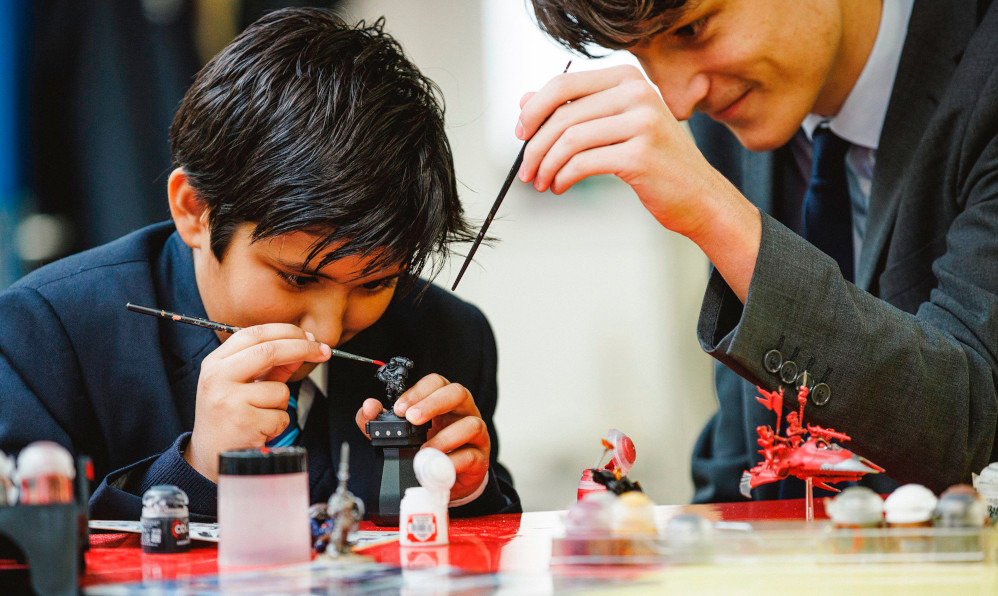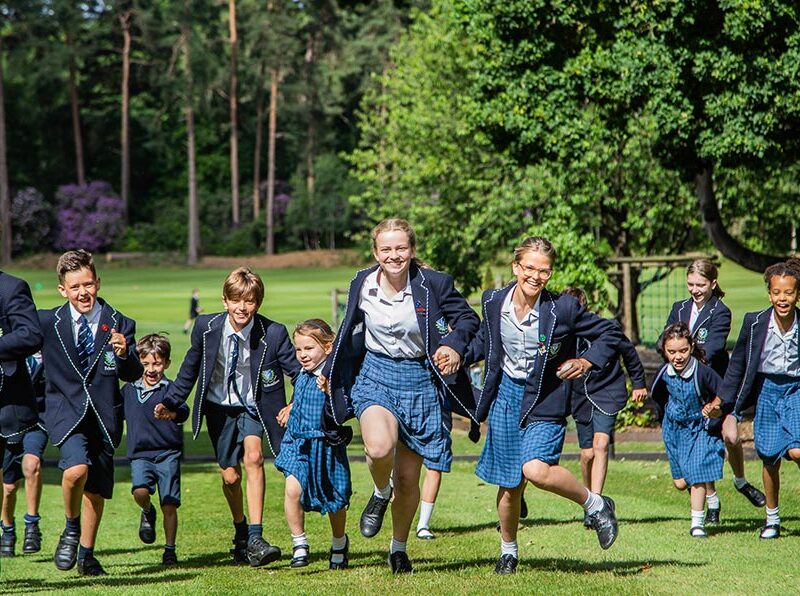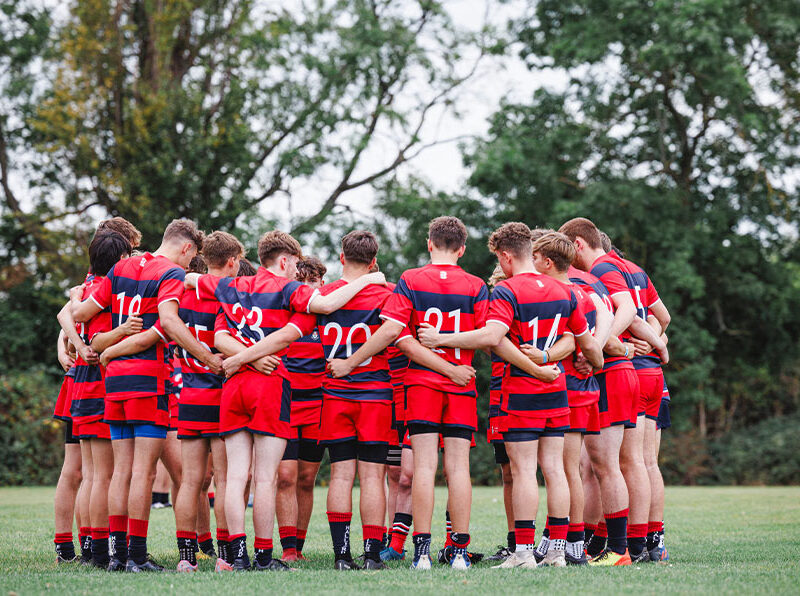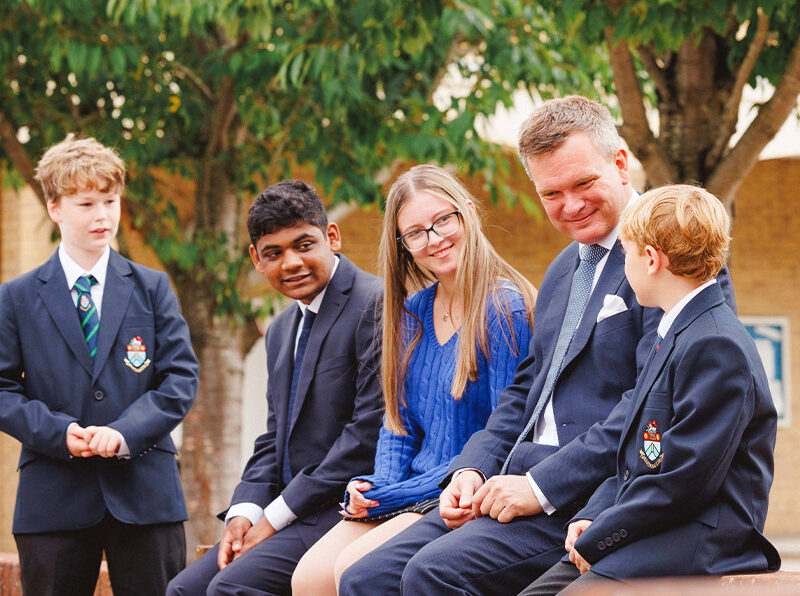
Mentoring in schools
Why mentoring matters
Jenny Booth looks at how schools are supporting pupils through peer-to-peer mentoring and coaching…
Students thrive when they feel like valued members of the school community who are recognised and listened to and whose needs are met. The truth of this was underlined once again in November when the universities of Cambridge and Manchester published a huge study of more than 11,000 students across the UK ranging in age from five to 16. The researchers found that the wellbeing and happiness of many students starts to fall after they reach secondary school.
While most children were satisfied with life at the age of 11, the majority were extremely dissatisfied by age 14. Changes in two vital relationships drive this falling off, the researchers said – the student’s relationship with their school, and with other students. Clearly the answer is for schools to support young people in a way that makes them feel connected to the place where they study and to the people they study with.
Evidence-based research by the Education Endowment Foundation has found that one of the most effective ways of achieving this is through mentoring. The act of talking to an adult or peer mentor on a regular basis, either one-to-one or in a small group, can forge that personal connection which grounds a young person and convinces them that they belong and they matter.
At Claremont Fan Court School there has always been a pastoral focus on treating pupils as individuals, with the security to ask for support where needed. This autumn the school took a step further by introducing vertical tutor groups across the senior school, placing every student in a group of no more than 16 pupils of different ages. Pupils will progress together with the same tutor, who can really get to know and understand each individual: their academic progress, co-curricular activity and wellbeing. The small, family nature of the group means that the older pupils are encouraged into mentoring roles, whether coaching others in sport or simply scooping up a younger pupil who has had a tough day. Where new starters may have previously felt daunted by taller, older peers, now they mix with them every day and this fear ceases to exist.
“It is this holistic approach which ensures that each pupil is being encouraged, guided and supported in all areas of school life,” says headmaster William Brierly.
Peer-to-peer mentoring has the added bonus of benefiting not just the young mentee but also the older mentor, research has found.
At Shrewsbury House School each Year 3 joiner is assigned a Year 8 buddy who sends them a welcome postcard over the summer holidays, introducing themselves. The new boys are invited to lunch at school the day before term starts, where the first person to greet them is their Year 8 buddy, who will take them on a tour of the school, introduce them to their tutor, and play with them – laying the foundations for a relationship that will last all year. Buddies have regular check-in sessions and lunch together at Christmas.
Year 8s cheer on their buddies at sporting events. “It is lovely to watch the informal interactions around the school, and the Year 8 pupils gently guiding their young charges through school life,” says Tom Eaves, Deputy Head, Pastoral.
At Putney High School the buddies are closer in age, with Year 8 girls providing a friendly face from day one to help new Year 7 pupils to find their way around and settle in. But it is not just new arrivals who need support.
Ella Barden, Putney High’s Deputy Head, Wellbeing, says that the need for mentoring had increased since Covid, with the return of GCSEs looming large in young lives.
“Like many schools, we have found that the pandemic had quite an impact on teenagers’ emotional maturity,” she says. “In Year 10 we have been looking at ways to help students with their emotional literacy, ensuring they are settled as they approach Year 11.”
Putney’s pastoral team has been working with students on ‘compassionate communication’, helping them to better recognise their own and others’ needs. The school has also launched a wellbeing podcast called ‘Thanks for Asking’, with guests including Professor Tanya Byron, and TikTok presenter Mary Mandefield.
Sutton High School prides itself on its special ethos of celebrating every individual girl for who she is. As well as ensuring class sizes are small, and assigning two tutors to every form to enable the utmost support, the school has introduced coaching for its older students. Coaching offers a variation on the mentormentee relationship, with the coach prompting the coachee to find their own answers.
Each of the senior students has regular coaching-style guidance tutorials, focusing on both pastoral support and academic success. “All our girls are respected, recognised for who they are and guided to find a place of belonging within our strong school community,” says Beth Dawson, the Head.
At Halliford School, mentoring is provided through a House tutorial system which emphases continuity of relationships and shared experience – two qualities identified by the Education Endowment Foundation as vital to successful mentoring. Students keep the same tutor from Years 8 to 11, while older students within each House create a shared school experience by mentoring and leading younger students. One of the most powerful experiences is the school’s charity and outreach programme, which is led by senior students who are Charity Prefects, liaising with local charities, collecting food bank donations and volunteering at a school for children with specific needs.
“Placing the student at the centre of all that we do and offering a wide range of thoughtful approaches to support students is something of which Halliford is quite rightly proud,” says Headmaster James Davies.
Alongside their tutorial systems, many schools have put in place additional support that can be accessed on demand. Royal High School Bath has created a team of Wellbeing Angels – staff who have received extra pastoral training. Any student can request a Wellbeing Angel, and this regular mentoring can help girls to work through their problems and seek solutions.
“The pastoral team is highly skilled in dealing with the turbulence of teenage life for girls, and staff are always on hand to help with any issues ranging from dealing with puberty, negotiating relationships, managing online profiles to the more serious end of the pastoral spectrum where students may have experienced trauma or be dealing with mental health issues,” says Elizabeth Cunningham, Deputy Head, Pastoral. RHSB also has a thriving peer mentoring programme, common rooms for every year group where students can let off steam with their friends, and a Wellbeing Hub which offers a quiet shared common room called The Hive, a silent chill-out room and a quiet study zone. “Mentoring exists in academia too, with Sixth Form students regularly meeting younger girls to help with languages and science – it is a wonderful thing to open my office door and hear this positive interaction.”
Top image: Halliford Sixth Formers mentoring younger students






